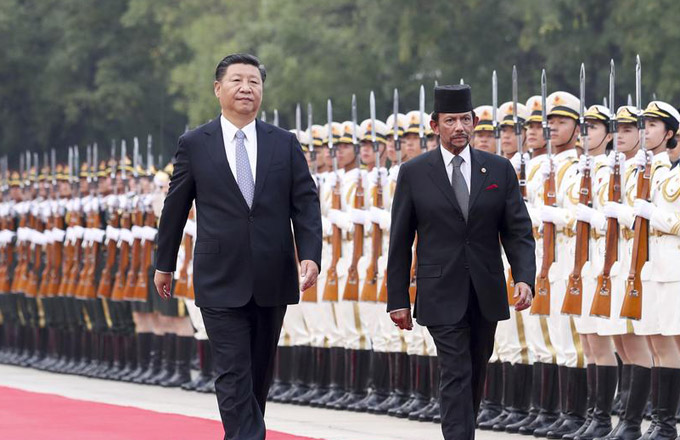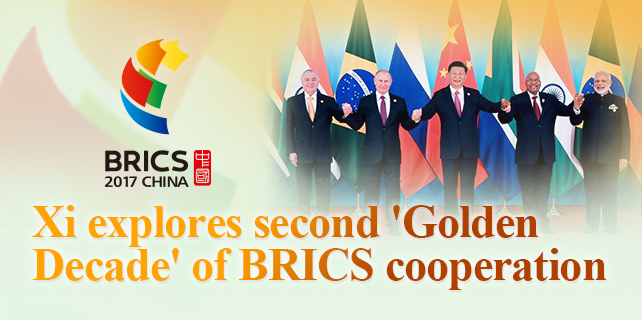Sanctions needed but are not the key to peace on peninsula
 |
|
Intercontinental ballistic missile (ICBM) Hwasong-14 is pictured during its second test-fire in this undated picture provided by KCNA in Pyongyang on July 29, 2017. KCNA via Agencies |
By cutting the DPRK's overall oil supply by about 30 percent, banning all textile exports and prohibiting all countries from authorizing new work permits for the country's workers, the sanctions will certainly deal a blow to two key sources of finance for Pyongyang and may somewhat jolt its nuclear and missile program. But whether or not they will make the DPRK abandon its nuclear program is open to question.
That before the UN vote the DPRK declared the United States would face "pain and suffering", as it would retaliate if any new sanctions were imposed should reflect the Pyongyang's determination to press ahead with its ambitious and contentious nuclear program despite intense international pressure. Perhaps this is where the UN resolution, if taken in its entirety, can help, for it also calls for seeking a peaceful resolution to the Korean Peninsula issue through diplomatic and political means, taking measures to defuse tensions on the peninsula and making efforts to resume the Six-Party Talks.
If such efforts are indeed made, the DPRK is more likely to abide by the Security Council's resolutions, halt, if not abandon, its nuclear/missile program and return to the negotiation table.
The UN must have realized by now that sanctions alone cannot force Pyongyang to give up its nuclear program. The key to peace on the peninsula lies in making Pyongyang see the benefits of voluntarily giving up its nuclear program. But to bring Pyongyang even close to that point, the international community has to give some assurances, assurances it will honor: that the DPRK's national security will not be threatened by any country and its urgent development needs will be met.
China threw its weight behind the Security Council because it agrees that measures should be taken against Pyongyang in response to its sixth and strongest nuclear test on Sept 3. And given its support to international efforts to denuclearize the peninsula and safeguard peace and stability in the region, China has called for the comprehensive implementation of the UN resolution.
That Pyongyang should immediately stop its nuclear and missile tests and the opposing parties refrain from making any more provocative moves goes without saying. In the end, however, the DPRK can be convinced of the benefits of abandoning its nuclear pursuit only through talks, not threats and sanctions. And once the international community accepts this fact, it may find the road to peaceful negotiations a lot smoother.





















